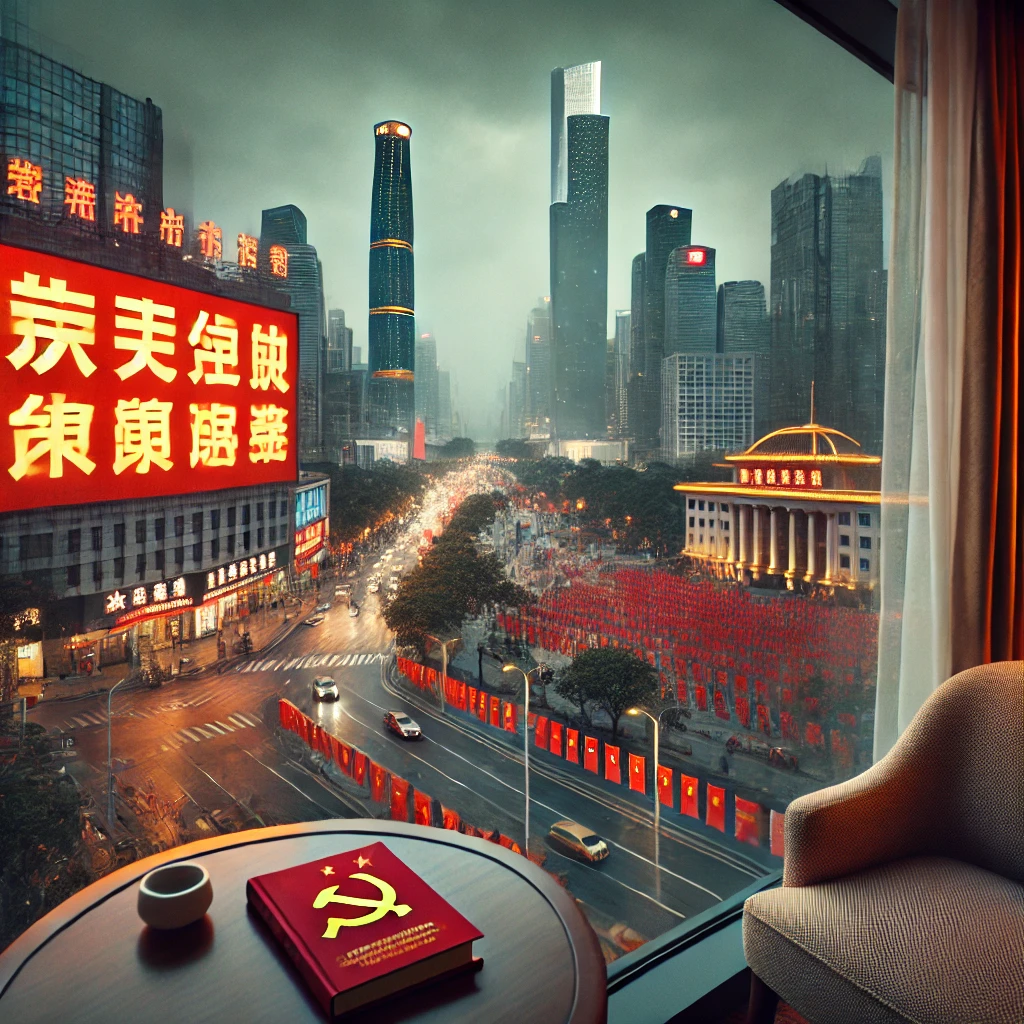When Xi Jinping took office in 2013, I—like many others—hoped that his leadership would improve China’s trajectory. But over time, my optimism faded as the country became more repressive, and the spaces I once enjoyed began to disappear.
I was living in Shenzhen in 2013. Whenever I read Western media hopes that Xi might potentially be China’s Gorbachev, I recalled one of my courses at the Foreign Service Institute (FSI) in Virginia, which among other topics covered cable-writing (a cable is basically a report, in the State Department’s fusty parlance). In one class, a 2000 cable from the Moscow Embassy was hailed as the epitome of what good reporting from the field looks like. The topic was Vladimir Putin’s recent ascension to power, and the reporting officer made the bold claim (based on a careful analysis of Putin’s track record) that he would be a reformer. To be fair to FSI instructors, I took the course in 2004, when it was not quite as clear that the cable’s predictions were totally wrong.
This historical cautionary tale, along with insights from my Chinese friends about Xi’s background, led me to have no illusions that he would be a democratic reformer. That said, I felt he would probably be an improvement over drab Hu Jintao, whose vision for China appeared uninspiring. I even posted a syrupy message on WeChat wishing President Xi the best on his mandate and hoping that China would be a better place at the end of it, or something along those lines.
My disenchantment took place gradually, yet there were a couple of moments that have stuck with me. A few months after Xi took office, I moved to Hong Kong but continued to travel to the Mainland regularly for business. As happens when you stop seeing a place regularly, changes become more noticeable. One evening, while walking around Shamian Island in Guangzhou, I saw what can only be described as a big character poster along the driveway of a government building—something I had never previously encountered in the city.
Big character posters (大字报) were a hallmark of Mao-era propaganda and public denunciations, so seeing one in modern Guangzhou was deeply unsettling. While propaganda was not uncommon in China, Guangzhou had always struck me as a pragmatic, commerce-driven city with little time for ideology. In fact, a tiled announcement calling for compliance with family planning rules in one of the alleys near the Garden Hotel stood out as a relic — to the extent that I made a point of photographing it.
I also photographed the sign on Shamian but instinctively felt wary of doing so openly. A Chinese friend to whom I sent the image contemporaneously said that it was the sort of thing she had only seen in books. Though I do not remember the exact content of the message, I clearly remember the lingering feeling of unease. It made me glad to have moved to Hong Kong.
A few months later, I was back in Guangzhou. More often than not, I stayed at local hotels during business trips, but this time I was at a new Marriott property in Tianhe, close to where I needed to be on that trip. As I settled into my room, I noticed a copy of one of Xi Jinping’s books on governance on display. Curious, I sat down by the room’s picture window to thumb through it.
A note on the book made it clear it was not complimentary, but could be purchased for ¥120, as I recall. No Bible, no Book of Mormon (for which Marriotts are famous), just Xi—a stark reminder of how ideological control was seeping into even the most apolitical spaces. Looking out the window, I saw a large digital display affixed to the building across the street. At regular intervals, the 12 Core Socialist Values scrolled down (“Harmony … Patriotism … Rule of Law …”).
Since my days as a diplomat had long passed, and I no longer got paid for reporting such cutting observations, I decided to put Xi to the side and get some real work done. I booted up my computer and connected to the internet. First, I got a message warning me to comply with relevant rules. Not the standard message you get when you log on to a public network, but one of these ominous warnings from Chinese officialdom. Soon I realized there was no VPN, the first time I recalled that happening at an international-brand hotel. It felt as though a small oasis had been razed over to make room for more desert.
Another measuring stick of how things were changing was the availability of SIM cards. Back in the late 2000s, these were easily purchased from street vendors. But over time that stopped being an option, and you pretty much had to go to China Mobile or other service providers and show your passport. During one of my last trips to China, I was able to pick up a card at Guangzhou East station without any rigmarole, but the next time I went to that shop, I had to get my photo taken and my passport scanned.
Perhaps it was the desired effect, but as time went on, I started scaling back my trips to China, to reduce the amount of time I actually spent in-country. During my early days in China, I relished the opportunity to travel. I would schedule trips so that I could stay in new cities for the weekend, or at least overnight. As tired as I was after long days of meetings, I would drag myself out to go for walks, to get a sense of the place I was visiting. This is how I became acquainted with China, pounding the pavement of cities and towns, even when there was not a lot to see in the conventional sense. The search for the rush of exploration was part of what kept me in China for many years, and of what made me move back to the Mainland twice after my initial departure in 2007.
But over time, I became that guy, the one with his suitcase at the back of the meeting room, sneaking out ten minutes before time, rushing to the airport for the flight back to Hong Kong. Whereas during my first two stints in Hong Kong I would happily cross the border for a weekend getaway, or even just to have dinner with friends in Shenzhen, I now needed a good reason (usually business-related) to go back. The thrill was gone.
And then Hong Kong, the one place that had always felt like an escape from the tightening grip of the mainland, came under siege too. The transformation was unmistakable: protest sites I had once walked past freely were now cordoned off by police, independent bookstores were replaced by outlets selling Party-approved literature, and even casual conversations in cafes became more guarded, punctuated by careful glances over shoulders. What had once been a refuge was now being transformed by the very forces I had spent years trying to avoid, its unique character dissolving into the very system I had been watching take shape across the border.
Hong Kong had become China, and neither was a place I wished to be anymore.

























